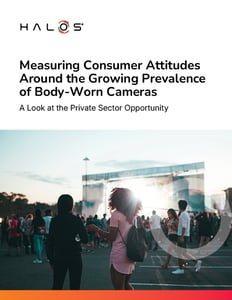

Smile, you’re on camera!
And most Brits are okay with that.
Frontline workers across the UK—from shop staff, to transit, and hospitality—are facing rising aggression and disorder. As body cams move beyond policing and into everyday settings, we wanted to understand how the public feels. HALOS partnered with YouGov to survey over 2,200 UK adults. The results reveal a nation adapting to a new reality: more cameras, more visibility, and shifting views on safety, behaviour, and accountability in public life.
"Bodycams are quickly becoming an accepted part of the public safety toolkit."

Have you noticed body-worn cameras in public?
Most Brits haven’t…yet.
Even as more businesses adopt body-worn cameras, the majority of people say they haven’t seen them in action outside of law enforcement. That’s likely to change as cameras become more common in stores, transit, and event spaces.
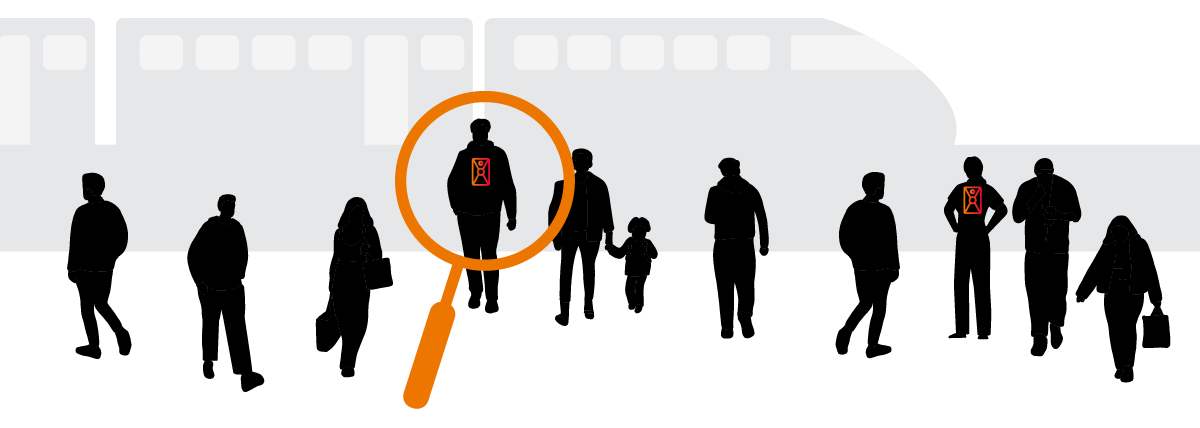
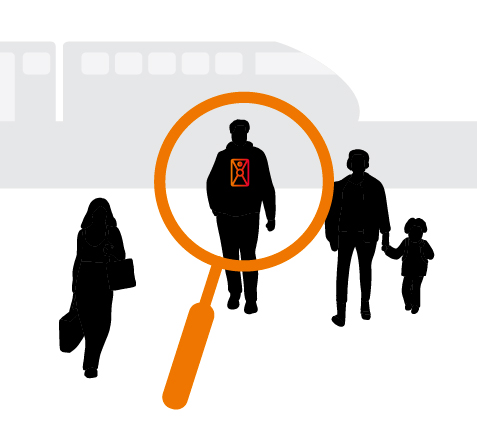
Have you ever noticed body-worn cameras being worn by employees in public settings (excluding law enforcement)?
52%
Yes (64% of Snapchat users, 59% of TikTok users)
38%
No, never
10%
Not sure
Body cams may not be widely seen—yet. But as safety concerns grow, visibility and public familiarity are only heading in one direction.
How comfortable are we with staff wearing body cams?
Comfortable. Uncomfortable. Mostly? Indifferent.
Brits are more open to body-worn cameras than you might expect. Nearly 4 in 5 adults say they either feel comfortable—or don’t feel strongly either way—when they see a body cam on a retail worker or private security guard.
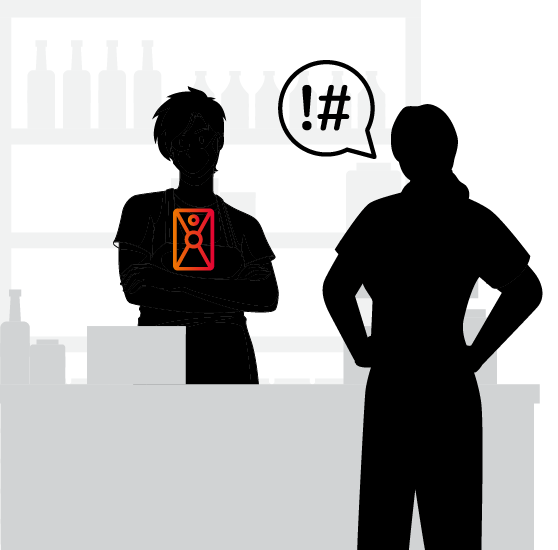
How comfortable would you feel if a staff member in a store was wearing a body-worn camera?

79%
Comfortable or indifferent

21%
Uncomfortable
29% 18-24 year olds
26% 25-34 year olds
17% 55+ year olds
Although the younger generations are still a bit uneasy, the majority of Brits don’t feel strongly one way or the other about the use of body cams. And, more people are comfortable (35%) than you might expect.

Why do people think body cams are being used?
It’s not about watching workers, it’s about protecting them.
When asked why businesses might equip staff with body-worn cameras, Brits didn’t cite control or oversight—they pointed to protection, prevention, and proof.
Top 3 reasons cited:

68%
To protect staff from verbal or physical abuse

60%
To deter theft or criminal behaviour

31%
To gather video evidence in case of disputes
Far fewer believe body cams are used to:

4%
Monitor staff performance

3%
Increase control or surveillance over workers
Public perception is clear: body cams are seen as tools to defend, not spy.
Where should body-worn cameras be used?
Brits want body cams where the stakes – and stress – are high.
The public overwhelmingly supports the use of body-worn cameras in private-sector frontline roles, especially where tensions can run high.
Most supported use cases:
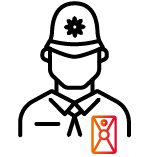
86%
Police and law enforcement

82%
Emergency workers (e.g. ambulance crews, mental health support teams, etc.)

64%
Private security (e.g. shopping centres, office buildings, events, etc.)

58%
Transport workers (e.g. delivery drivers, bus/train staff, etc.)

49%
Retail staff (e.g. shop workers, supermarket staff, etc.)

47%
Hospitality staff (e.g. pub/bar, venue security, etc.)
Emergency response, transport, and retail are now viewed as critical sectors where body cams help protect both staff and the public.
Funny how people act differently when they know they’re on camera.
Brits don’t just tolerate body-worn cameras, they say the cameras change how people behave, making public spaces feel safer and more civil.
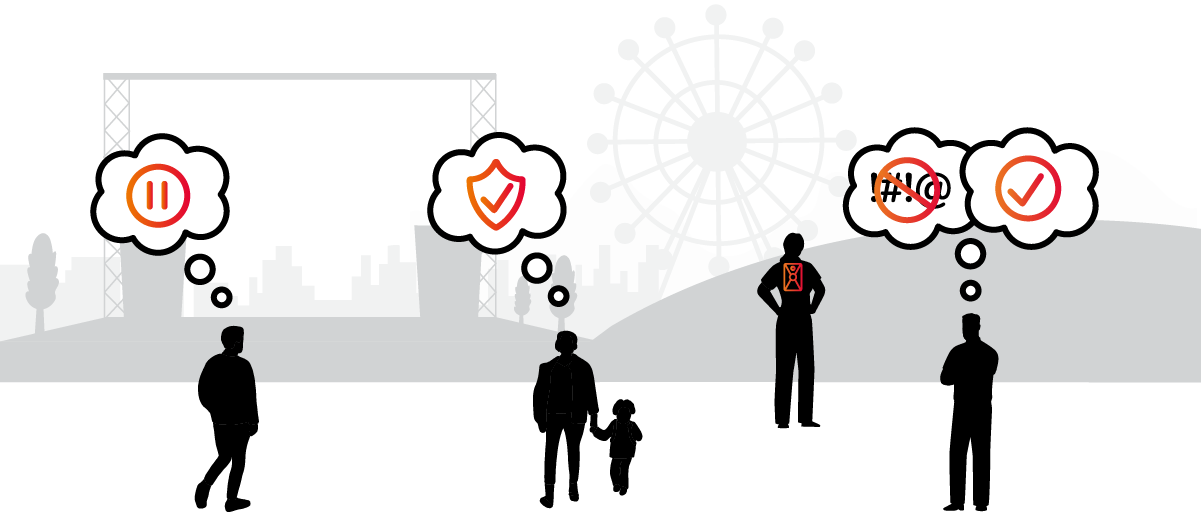
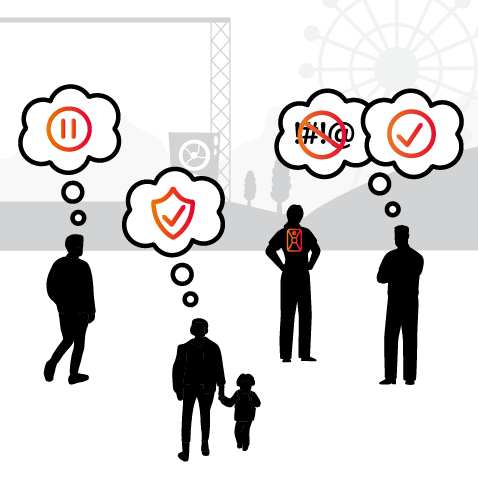
73%
agree that body cams help deter disorderly conduct
55%
say that cameras increase their sense of personal safety
44%
say they would think twice about their behaviour if staff were wearing cameras (61% of Gen Z, 55% of Millennials, 31% of retired adults)
Body-worn cameras don’t just record problems, they help prevent them.

The new norm in public safety.
Body-worn cameras are becoming part of everyday life—and public attitudes are shifting with them. As more businesses adopt this technology, the conversation is no longer just about surveillance, but about safety, accountability, and how we behave in shared spaces.
